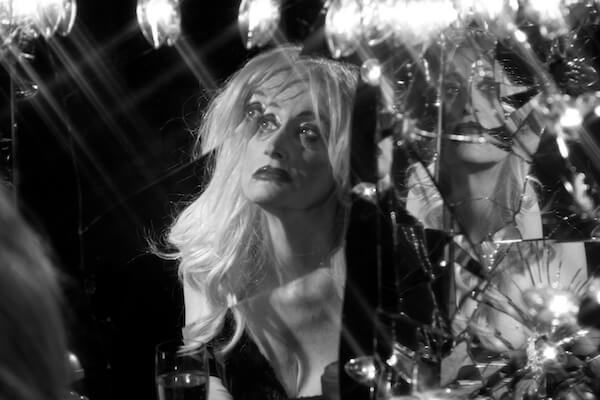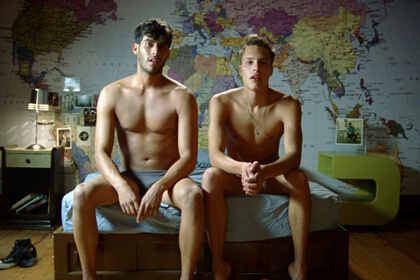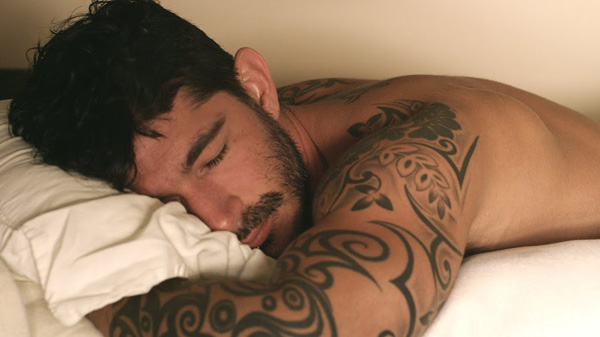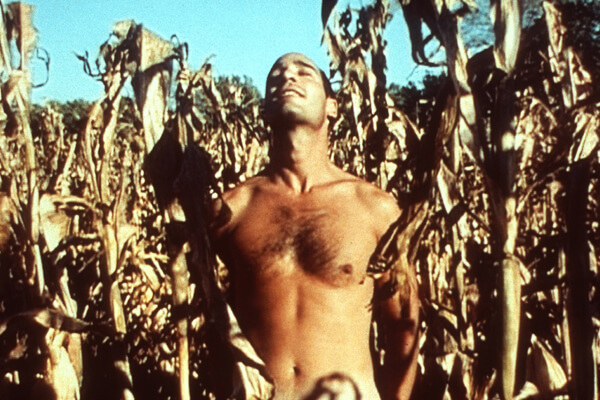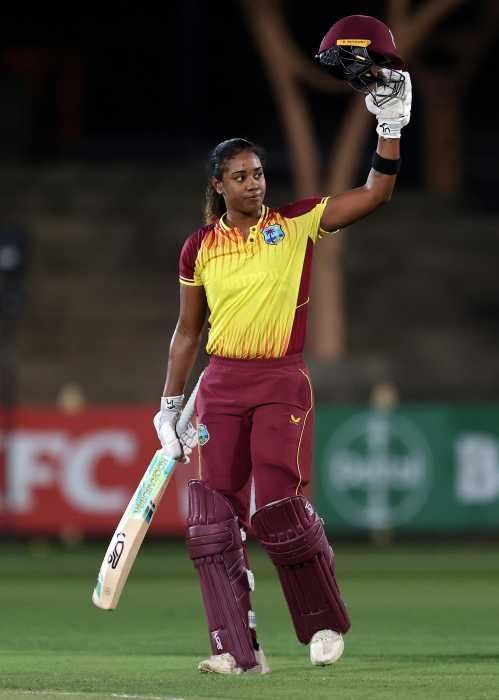Matt Sizemore in Todd Verow’s “Available Light.” | COURTESY: TODD VEROW
Todd Verow’s latest erotic, experimental video, “Available Light” is now available on DVD and through Vimeo, along with “Age of Consent,” his affectionate documentary about the London leather club the Hoist. In both films Verow presents a penetrating investigation of sex, fetishism, and gay subcultures.
“Available Light” is a non-narrative feature that showcases more than a dozen lonely, often horny guys in Berlin, Paris, and New York. The men are seen showering, fucking, or trying to find a connection in their lives. Verow focuses on his characters’ faces and often-naked bodies to create the film’s emotion. Exploring the quotidian existence of these characters, Verow captures both the peace they have found in their lives and the discomfort each experiences.
With his latest experimental video, Todd Verow stays true to his outsider vision
In contrast, “Age of Consent” is an exuberantly naughty documentary that takes viewers on a virtual tour of a longtime London nightspot — slings and strippers, and all — affording them opportunities for fantasy, voyeurism, and escapism.
Verow chatted about his latest films with Gay City News.
GARY M. KRAMER: What inspires you to come up with the vignettes in “Available Light”
TODD VEROW: The idea of the film came to me with the title and shooting just with available light. Then I was thinking about light — daytime, nighttime, sunrise — which got me thinking about loneliness and how you are aware of the light. I wanted to create different vignettes — not to be connected, but to let the viewer make connections themselves, based on their own experiences.
GMK: The film is a like a series of short films. How did you create the shorts and connect them together so they have the emotional pull and power?
TV: I thought of each vignette as a portrait for a different character. I explained to each actor who the character was and what they were doing. None of it was very scripted — a few lines, really. I wanted to keep it as simple as possible. I shot this over a few years. As I traveled to different places and met different people, I worked with actors I knew and new people I met. I shot it as each opportunity presented itself. Then, when I felt I had enough, I had to edit it and figure out how it all fit together. It was more an emotional editing.
GMK: The guys in “Available Light” — and to some extent “Age of Consent” — are heavily inked, often pierced, and very sexy. Can you talk about what you looked for in the men you film?
TV: I was looking for people that have some experience — not a world-weariness, but who are not naïve; they are not hopeful, but not jaded. They are still searching but have been through a lot, and it’s harder for them to accept things on face value or be optimistic. They are realistic, not idealistic.
Filmmaker Todd Verow. | BANGORFILMS.COM
GMK: You emphasize faces and bodies. In “Available Light” you have guys taking showers, eating ice cream, or masturbating. Can you talk about using the camera as a microscope to record these men alone in private moments?
TV: I’m interested in behavior and capturing those real moments with people. That’s why when I’m working with actors and non-actors, I wear them out to the point that they stop thinking about what they are doing and just do it. As a filmmaker and viewer, you feel like you almost shouldn’t be watching these scenes, like when Steve (Mike Dreyden) is alone online. I used the moments of him just sitting there, bored and horny — and chatting online because he’s bored. I wore him down. When a person’s guard is down, it exposes something about their character. And it gets you thinking about your own behavior and life.
GMK: You could almost apply that concept to shooting a doc.
TV: A documentary is different because you don’t know what you are going to get. I am a purist, because I don’t like to manipulate things. I like to go with what’s happening and let the person I’m filming take it where they are going. In fiction, I want them to go to a place and get there. My goal is the same, however: to get to a realness that is there. In documentary, it’s to get them comfortable to talk about themselves. In fiction, it’s to get them comfortable where they can be someone else.
GMK: Since this is the Pride issue, can you talk about feelings of pride you have in your work?
TV: I make my films on my own terms. I use my own money. I shoot and edit them. I distribute them on my own for the most part. Being completely independent is something I’m proud of. I am able to work autonomously without thinking about how it will be distributed or having to make back investors’ money. That LGBT or non-straight people can do what they love without compromise — that’s something to be proud of and what we gay people strive for.
GMK: Is that what makes you explore underground queer subcultures?
TV: When I was a kid, I felt like an outsider — and that didn’t bother me. I felt special in a way because I was an outsider. The idea that gays need to fit in baffles me. I don’t understand that need to fit in. What interests me are people who create their own world and morality and fetishes and what leads them to want to have those fetishes or pursue those goals, relationships, or ideas. I’m interested in individuals who don’t conform or fit in — the outsiders, the underground people willing to take risks to pursue their dreams and sex and love.
Check out bangorfilms.com for access to Todd Verow’s film work.



